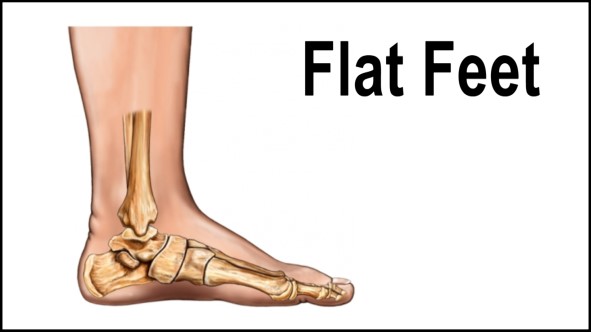 In the journal PLoS One, researchers have found common wisdom when it comes to flat feet to be scientifically true. The Framingham Foot Study measured foot posture in 3,000 people, finding that people with flat feet were more at risk for overlying toes and conditions such as hammertoe and bunions.
In the journal PLoS One, researchers have found common wisdom when it comes to flat feet to be scientifically true. The Framingham Foot Study measured foot posture in 3,000 people, finding that people with flat feet were more at risk for overlying toes and conditions such as hammertoe and bunions.
On the contrary, people who possessed high arched feet were less likely to develop these feet conditions; since high arched feet tend to supinate as opposed to pronate. However, the study did not indicate any relationship between foot type and developing plantar fasciitis.
Having flat-feet can lead to complications down the road. If you think you have flat feet you should seek out the care of a podiatrist such as like Dr. Howard Hyman of The Podiatry Center, P.C. Dr. Hyman will diagnose any foot conditions you may have as well as provide you with a range of treatment options.
What are Flat Feet?
Conditions & Problems:
Having flat feet makes it difficult to run or walk because of the stress placed on the ankles.
Alignment – The general alignment of your legs can be disrupted, because the ankles move inward which can cause major discomfort.
Knees – if you have complications with your knees, flat feet can be a contributor to arthritis in that area.
Symptoms:
- Pain around the heel or arch area.
- Trouble standing on the tip toe.
- Swelling around the inside of the ankle.
- Flat look to one or both feet.
- Having your shoes feel uneven when worn.
If you have any questions, please feel free to contact our office in Milburn NJ. We offer the newest diagnostic and treatment technologies for all your foot ankle injuries.
Read more on Flat Feet.
